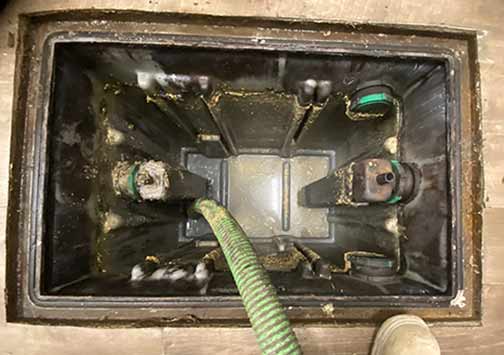When it comes to running a successful restaurant, there are many factors to consider, from the quality of the food to the service provided. However, one aspect that is often overlooked is the maintenance of the restaurant kitchen plumbing. Properly maintaining the plumbing system in a restaurant is crucial for a number of reasons, including ensuring the health and safety of both customers and staff, maintaining a clean and hygienic environment, and avoiding costly and disruptive plumbing issues. Here we will explore the importance of properly maintaining restaurant kitchen plumbing and provide some useful tips on how to do so.
Why Proper Maintenance is Essential
Restaurant kitchen plumbing is subject to a lot of wear and tear due to the high volume of water usage, as well as the food particles and grease that can accumulate over time. This makes regular maintenance essential to prevent plumbing problems that can disrupt operations and lead to unsanitary conditions. By properly maintaining the plumbing in your restaurant’s kitchen, you can avoid the following issues:
- Clogged drains: Food particles, grease, and other debris can accumulate in the drains, leading to clogs that can cause backups and unpleasant odors. Regular maintenance can help prevent these clogs and keep the water flowing smoothly.
- Leaks: Leaking pipes can not only waste water but also cause damage to the surrounding areas. Promptly addressing any leaks can help prevent water damage and mold growth.
- Foul odors: A kitchen with poor plumbing maintenance can often develop foul odors, which can be off-putting to both customers and staff. Regular cleaning and maintenance can help eliminate these odors and create a more pleasant environment.
- Bacterial growth: Without proper maintenance, bacteria can thrive in the kitchen plumbing system, posing a risk to the health and safety of both customers and staff. Regular cleaning and maintenance can help prevent the growth of harmful bacteria.

Make sure to install grease traps in the appropriate locations and clean them regularly to ensure they are functioning effectively.
Tips for Properly Maintaining Restaurant Kitchen Plumbing
Now that we understand the importance of proper maintenance, let’s explore some practical tips for keeping your restaurant kitchen plumbing in top shape:
Regularly clean the drains
Food particles, grease, and other debris can easily accumulate in the drains, leading to clogs and unpleasant odors. To prevent this, it’s important to regularly clean the drains using a drain cleaner or a mixture of baking soda, vinegar, and hot water. Be sure to follow any specific instructions provided by the manufacturer of the drain cleaner.
Install and maintain grease traps
Grease traps are essential for restaurants to prevent grease from entering the plumbing system and causing clogs. Make sure to install grease traps in the appropriate locations and have the grease traps cleaned regularly to ensure they are functioning effectively.
Educate staff on proper usage
Train your staff on the proper usage of the kitchen plumbing fixtures to prevent any unnecessary strain or damage. This includes teaching them how to properly dispose of food waste and grease, as well as using the garbage disposal correctly.
Schedule regular inspections
It’s important to schedule regular inspections of your restaurant kitchen plumbing system to catch any potential issues before they escalate. Hire a professional plumber to conduct thorough inspections and address any problems that may arise.
Promptly address leaks
If you notice any leaks in your restaurant kitchen plumbing, it’s crucial to address them promptly. Even small leaks can lead to significant water damage and mold growth if left untreated. Contact a plumber to fix the leaks as soon as possible.
Maintain proper ventilation
In addition to maintaining the plumbing fixtures, it’s also important to ensure proper ventilation in your restaurant kitchen. Adequate ventilation helps prevent the buildup of moisture and reduces the risk of mold growth.
Follow local regulations and guidelines
Every region may have specific regulations and guidelines regarding restaurant kitchen plumbing. Make sure to familiarize yourself with these regulations and ensure that your plumbing system complies with them.
Properly maintaining restaurant kitchen plumbing is essential for ensuring a safe, clean, and efficient working environment. By following the tips provided in this article, you can minimize the risk of plumbing issues and create a positive dining experience for your customers. Remember, regular maintenance and inspections are key to preventing costly and disruptive plumbing problems. Invest the time and effort into maintaining your restaurant kitchen plumbing, and you’ll reap the rewards in terms of improved efficiency, reduced downtime, and enhanced customer satisfaction.
